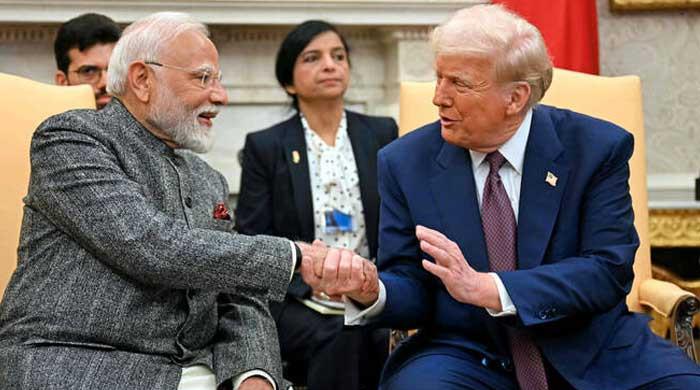
Trump’s Stance on Indian Oil Imports: A Diplomatic Tug-of-War
In a recent statement aboard Air Force One, former U.S. President Donald Trump made headlines by asserting that he would maintain 'massive tariffs' on India until the country ceases its import of Russian oil. This declaration not only emphasizes the intricate dynamics of global trade but also highlights the ongoing geopolitical tensions that influence economic policies.
The Context of the Statement
The geopolitical landscape has been rapidly evolving, particularly with the backdrop of the ongoing conflict in Ukraine and the subsequent sanctions imposed on Russia by Western nations. In response to these sanctions, countries like India have found themselves in a complex position, balancing their energy needs with international diplomatic pressures.
During a recent meeting with Indian Prime Minister Narendra Modi, Trump claimed that Modi assured him that India would stop purchasing oil from Russia. This remark is significant, as it underscores the pressure that the U.S. is placing on its allies to align with its foreign policy objectives. The implications of this statement are manifold, affecting not just U.S.-India relations but also the broader global oil market.
Tariffs as a Diplomatic Tool
Tariffs have long been a tool used by governments to influence trade behaviors and protect domestic industries. Trump’s announcement of maintaining 'massive tariffs' on India serves as a stark reminder of the economic ramifications that can arise from geopolitical decisions. These tariffs are designed to deter India from continuing its oil trade with Russia, thereby pushing the country toward compliance with U.S. objectives.
Understanding the Economic Impact
The potential economic fallout from sustained tariffs can significantly affect both the U.S. and Indian economies. For India, high tariffs could lead to increased costs for American goods, affecting consumers and businesses alike. Conversely, U.S. industries that rely on Indian markets may also face challenges, creating a ripple effect throughout the economy.
Moreover, the energy sector is particularly sensitive to geopolitical shifts. Should India cease its Russian oil imports, it may seek alternative suppliers, which could reshape the global oil market and influence prices. This shift could also lead to a re-evaluation of energy strategies in both countries.
The Broader Implications for U.S.-India Relations
Trump's statement comes at a time when U.S.-India relations are under scrutiny. Historically, these two nations have enjoyed a partnership based on shared democratic values and economic interests. However, Trump's recent comments indicate a potential strain in this relationship, as India navigates its own energy security needs while facing external pressures.
Navigating Energy Security
India is one of the world's largest consumers of energy, and its reliance on imported oil makes it particularly vulnerable to fluctuations in the global market. The country has been diversifying its energy sources, but Russian oil has remained a significant part of its energy mix, especially during periods of high demand.
As the U.S. pushes India to align its energy policies with Western standards, India must carefully balance its domestic needs with international obligations. This balancing act is crucial for maintaining its economic stability and ensuring energy security.
Conclusion
In summary, Trump's declaration to keep 'massive tariffs' on India until it halts Russian oil imports reflects a broader trend of using economic measures as tools of foreign policy. The implications of this stance are significant, affecting not only U.S.-India relations but also the global oil market and energy security. As countries navigate these complex dynamics, the future of international trade and diplomacy remains uncertain.
FAQs
1. What are the reasons behind Trump's tariffs on India?
Trump's tariffs are primarily aimed at pressuring India to stop importing oil from Russia, aligning with U.S. foreign policy objectives amid geopolitical tensions.
2. How might these tariffs affect the Indian economy?
Sustained tariffs could increase costs for American goods in India, negatively impacting consumers and businesses while also complicating trade relations between the two nations.
3. What is the significance of India's oil imports from Russia?
India's oil imports from Russia are a critical part of its energy strategy, providing necessary resources to meet the country's high energy demands amidst global market fluctuations.
4. How does this situation affect global oil prices?
If India ceases its Russian oil imports, it may seek alternative suppliers, which could lead to shifts in the global oil market and influence overall oil prices.
5. What does this mean for U.S.-India relations moving forward?
Trump's remarks indicate potential strains in U.S.-India relations, as India must navigate its energy security needs while responding to external pressures from the U.S.
Tags
World
